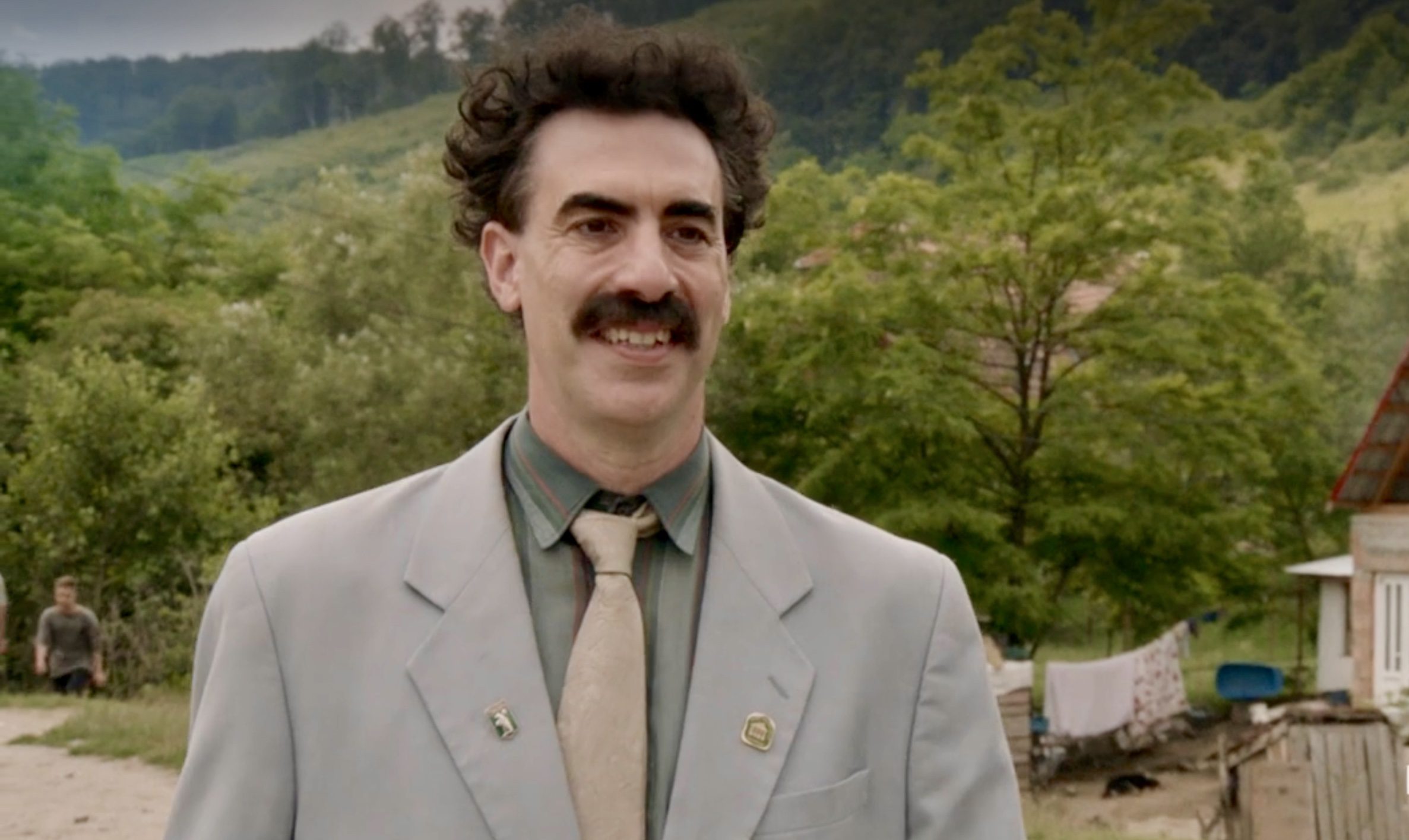Sacha Baron Cohen, Propagandist
CIA contacts, a web of lies, and a robust propaganda operation. It's time to start asking questions about Borat's methods—and his goals.

Ayman Abu Aita is a family man. For years, he was a grocer by trade, running his shop in Bethlehem while serving on the board of the Holy Land Trust, a nonprofit group working for peaceful reconciliation in the Israeli-Palestinian conflict. Like many Palestinians, he is a Christian, a practicing member of the Greek Orthodox Church.
He must have been as shocked as everybody else to see his face broadcast across the world above the identifier: “ayman abu aita, terrorist group leader, al-aqsa martyrs brigade.”
The interview in question—conducted in character by Sacha Baron Cohen and featured in his movie Bruno—had been held under false pretenses, and deceptively edited to boot. Abu Aita pursued legal action and, in a rare (albeit measured) victory for one of Cohen’s victims, managed to settle out of court. The lawsuit ended in 2012, and the interview had been conducted in 2009, so this all may seem like ancient history. But a few of the episode’s more bizarre details have never been adequately explained, and Borat’s carefully timed return ought to revive our interest.
In addition to his long record of peaceful activism—which had earned Abu Aita two years in an Israeli jail on unsubstantiated charges—Baron Cohen’s fake terrorist just happens to have been a parliamentary candidate in Palestine at the time of the Bruno debacle. Thanks to Cohen’s actions, Abu Aita received death threats and sustained serious damage to his reputation, his business, and his campaign.
While it remains possible that Abu Aita was a random victim, it practically defies belief: why travel halfway across the world to interview a random person who is manifestly not a terrorist? Had the goal here solely been the bit, the same scene could have been shot for a fraction of the cost in a cheap LA motel, with an unknown actor of a reasonably believable ethnic extraction. It is immensely difficult to consider the great lengths to which Cohen went in painting Abu Aita as a terrorist to be somehow independent of who he was, of his years of political activity, and of the damage done to him by the stunt. It is hard to see any of this as accidental.
In Abu Aita’s account, the interview “was set up via Awni Jubran, a journalist for the Palestinian news agency, PNN,” with the supposed purpose of discussing peace efforts and life in Palestine. Cohen, in an interview with David Letterman the week after Bruno‘s premiere, offered a somewhat different account of how he first became interested in Abu Aita. Out of character, clean-shaven, sporting a t-shirt, a blazer, and the Queen’s English, Cohen provided a sometimes-necessary reminder that he is neither a poor Kazakh reporter nor a gay Austrian fashionista, but an obscenely wealthy, Cambridge-educated Brit. This rarely seen, authentic Cohen informed Letterman that he had sought a list of names from a contact at the CIA, and from there did some asking around in the Middle East until he located the “terrorist” he wound up interviewing. The million questions that ought to arise from this admission—Who does Cohen know at the CIA, and why? Why did this CIA contact share any information with him? What was the CIA’s interest in Abu Aita? and countless others—were simply brushed aside, and the conversation continued.
In his answer to Abu Aita’s complaints, Cohen swore, through his lawyers, that the statements in question were “substantially true.” Likewise, Letterman’s answer attested to the substantial truth of the interview while also “admit[ting] Cohen stated that he received information from a contact at the ‘C.I.A.'” While substantial truth in libel and slander law allows for “slight inaccuracies of expression,” any conceivable definition of the term still includes Cohen’s insistence on the sincerity of the CIA claim.
* * *





Geen opmerkingen:
Een reactie posten